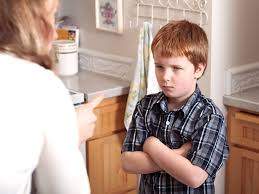- Phone: 011-41680215
- Mon-Fri (10am - 8pm)
- info@biswasheartandmindclinic.com

News & Blog
7 COMMON BEHAVIOR PROBLEMS SEEN IN CHILDREN
All young children can be naughty, defiant, and impulsive from time to time, which is perfectly normal. However, some children have challenging behaviors that are outside the norm for their age.
Here we are going to look at the 7 common behavioral disorders in children. These behavioral disorders share some common symptoms, so diagnosis can be difficult and time-consuming. A child or adolescent may have two disorders at the same time. Other exacerbating factors can include emotional problems, mood disorders, family difficulties, and substance abuse. This article provides practical tips for parents to help their children deal with anxiety, depression, attention deficit disorder, habit disorders, eating disorders, developmental disorders, and uncommon factors like schizophrenia and bipolar disorders.
7 COMMON BEHAVIOR PROBLEMS SEEN IN CHILDREN ARE:
:
1. Anxiety
2. Depression- unhappiness, irritability, or mood swings
3. Attention deficit disorder - your child is impulsive, hyperactive, and inattentive. All of this finally ends up in poor school/college performance.
4. Habit disorders or tics
5. Eating disorders - like binge eating disorders like anorexia nervosa or bulimia nervosa seen primarily in teens
6. Developmental disorders - like AUTISM
7. Uncommon factors like schizophrenia/psychosis and bipolar disorders generally tend to happen in the late teens or 20s.
WHAT SHOULD ALARM YOU AS A PARENT?
The following symptoms should alert you to seek MEDICAL HELP:
1. Frequent mood changes
2. Feelings of tension with an irregular heartbeat/palpitation and sweating palms
3. Increased rate of respiration on trivial issues, or extreme irritability or unhappiness
4. Withdrawal from activities that lasts for 2 weeks or more.
5. Mood swings that cause problems in relationships reception or college.
6. Intense feelings in mind like feelings of overwhelming worry for no reason generally with a rapid heartbeat or fast respiration - or worries or fears intense enough to interfere with daily activities.
7. Behavior changes These include forceful changes in behavior like anger issues, fighting, or frequently expressing a desire to badly hurt others.
8. Issue concentrating on things and being forgetful. May show signs of problem focusing or sitting still, which result in poor performance in school.
9. Hyperactivity: being aggressive and impulsive.
10. Unexplained weight loss: A sudden loss of desire, frequent instinctive reflex, or use of laxatives may indicate an eating disorder.
11. Physical symptoms: they will develop headaches and stomach aches rather than unhappiness or anxiety which may lead us to contemplate various things.
12. Physical harm: generally a psychological state condition finally ends up in self-harm like injuring yourself. children with a psychological state condition in addition may like unsafe thoughts or strive suicide.
13. Substance abuse: Some children resort to medication or alcohol to undertake to cope up with their feelings.
HOW TO OVERCOME PSYCHOLOGICAL ISSUES IN CHILDREN
- Well, the foremost effective issue to do and do is guarantee that your child eats a well-balanced diet with adequate sleep hours.
- Make sure children exercise often every within and outdoors. they have to socialize with their peers every in school, playgrounds, or hobby classes.
- Doing yoga and meditation in class as a program or having a counseling session once per week with a counselor at school have to be organized so children can open up to them and what is bothering them.
- Expressing their emotions, connecting with parents & having a cordial associated an encouraging atmosphere reception very helps.
- Keep TV/ mobiles out of the kids' space. Monitor the content they viewed on mobile or TV and work towards channelizing their energy in higher constructive things.
- Seek professional help: If your child is experiencing symptoms of a mental health disorder, it's important to seek professional help from a mental health provider. A trained therapist or counselor can provide appropriate treatment and help your child cope with their emotions and behaviors.
- Practice relaxation techniques: Encourage your child to practice relaxation techniques such as deep breathing, progressive muscle relaxation, or visualization. These techniques can help reduce stress and anxiety levels.
- Set realistic goals: Help your child set realistic goals and celebrate their achievements, no matter how small. This can boost their self-esteem and confidence.
- Encourage healthy hobbies and interests: Encourage your child to engage in healthy hobbies and interests, such as sports, music, art, or volunteering. These activities can provide a sense of purpose and boost self-esteem.
- Foster a supportive environment: It's important to foster a supportive environment at home and school. Encourage open communication and provide a safe space for your child to express their emotions without judgment. Teachers and school staff can also play a crucial role in supporting children with mental health issues.
Life science indeed plays an important role in the psychological state in children. If a parent is packed with a mental illness, their children are prone to having it too. But adapting the aforementioned measures we can help to curb the matter immensely. Some disorders begin in childhood and continue into adolescence and adulthood. Others disappear or improve with age. If a child does not receive the desired care in time, the mental state may continue into adulthood, creating a high risk for issues like misuse like alcohol, smoking, or developing delinquent behavior. But if the matter is given correct diagnosis and treatment at the correct time, a child's future is also shaped through a positive approach.

